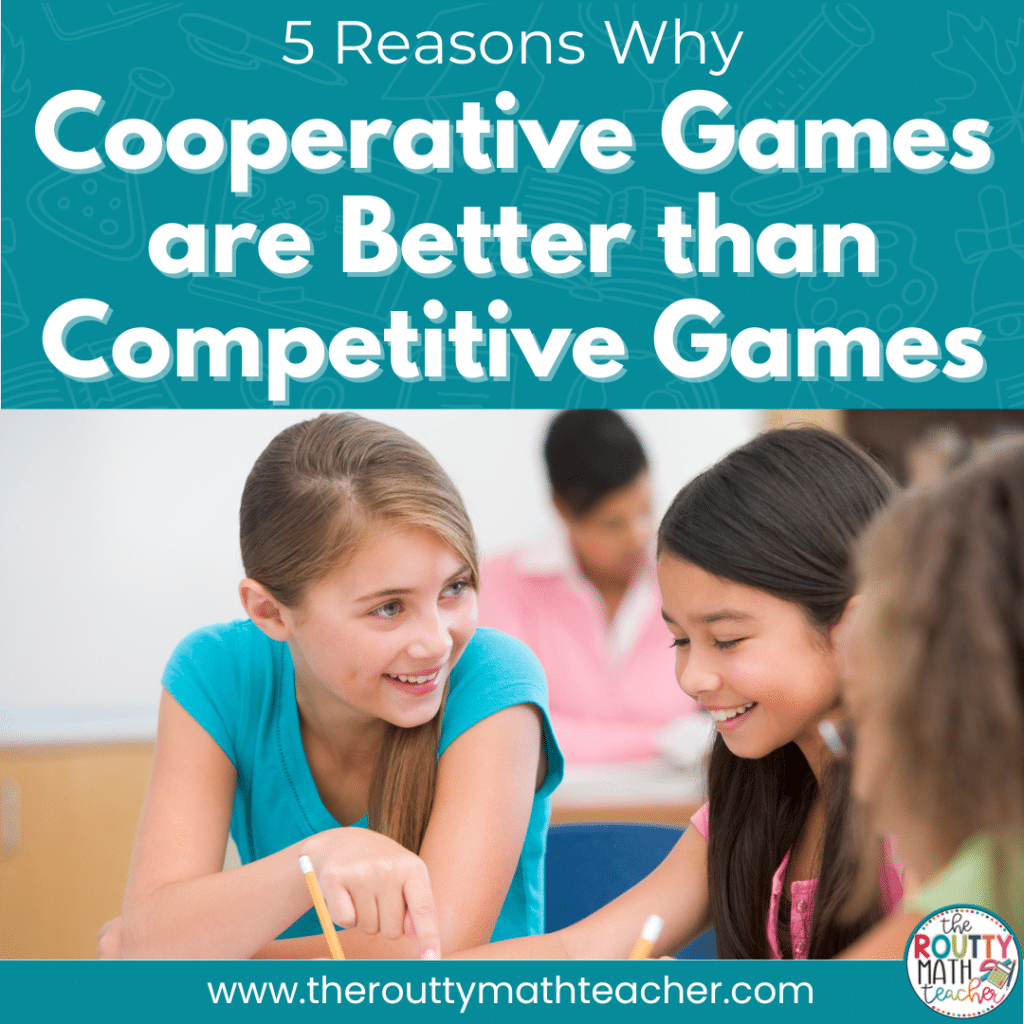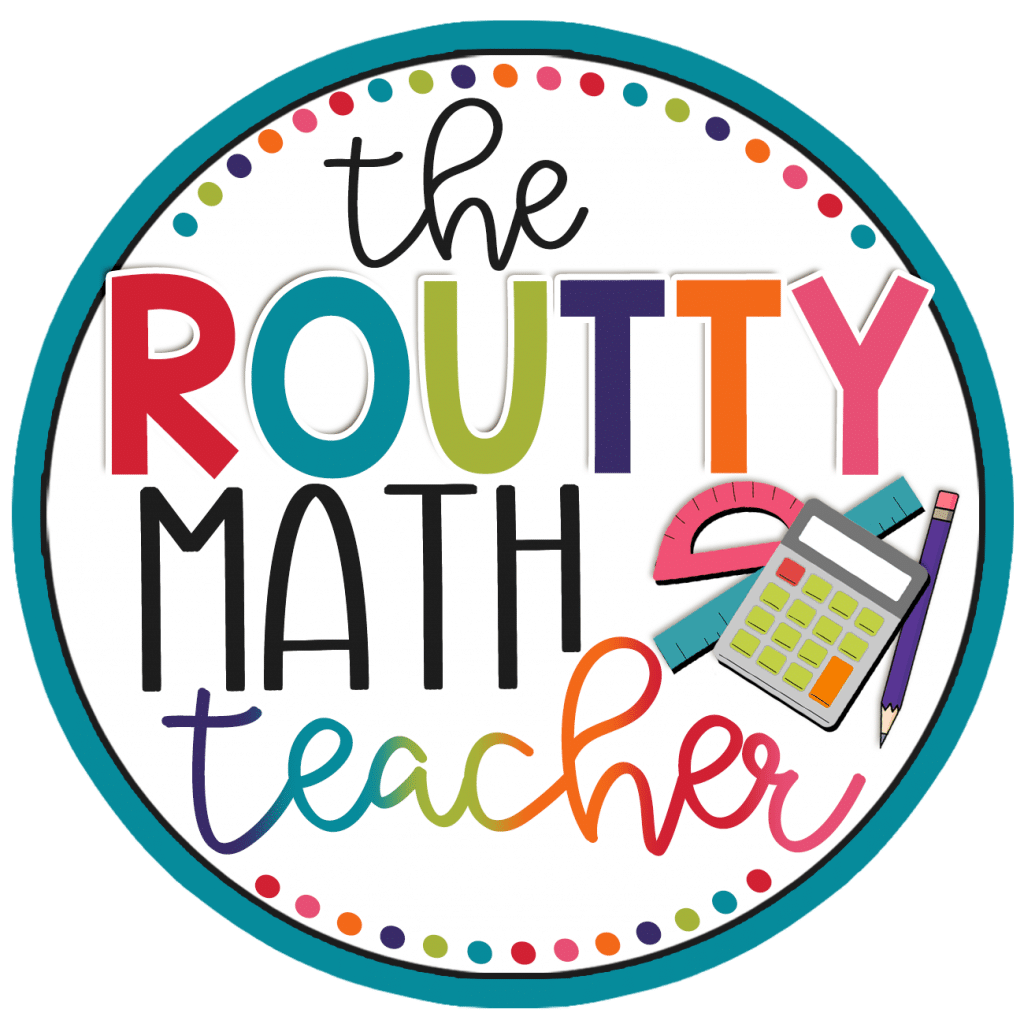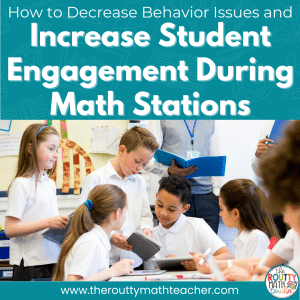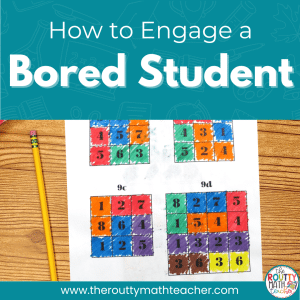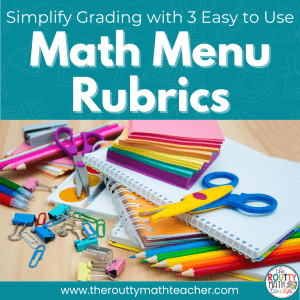Students love playing games in the classroom. But, the game can go awry when students are focused on winning. In this post, I compare using cooperative games vs. competitive games in the classroom and share ways I transformed some of my favorite multiplication games into cooperative games.
Student 1: (frustrated) Hey, why did you just move your game piece two spaces instead of one? That’s cheating!
Student 2: (nervously) Oh, um… I didn’t mean to. I must have made a mistake. Let’s just keep playing.
Student 1: No way! You’re always doing this. It’s not fair, and I’m tired of it. I’m going to talk to Ms. Routt.
Student 2: Wait, no! Please don’t tell Ms. Routt. I promise I won’t do it again.
Student 1: (crossing arms) I can’t play with you anymore. You keep breaking the rules.
Student 1: (yelling) Ms. Routt!
I’m sure we can all relate to this situation. Playing games in the classroom can go south when games are competitive and students are focused on winning.
Cooperative vs. Competitive Games
Over the last few years, education has experienced many changes. As educators, we are not only responsible for developing students’ academic skills but also their social-emotional learning (SEL) competencies.
One effective way to cultivate SEL in upper elementary math classrooms is through the use of cooperative games. Unlike competitive games that pit students against each other, cooperative games promote collaboration, empathy, and teamwork.
In the following paragraphs, I discuss the benefits of incorporating cooperative games into the upper elementary math classroom and share ways I transformed some of my favorite multiplication games into activities that foster students’ social-emotional growth.
Benefits of Cooperative Games
1. Encourages Collaboration:
Cooperative games provide rich opportunities for collaboration among students. By working together towards a common goal, students learn to communicate effectively, share ideas, and actively listen to their peers. These skills are vital for their social development, as they enhance cooperation and promote a supportive classroom community.
In math, cooperative games allow students to discuss problem solving strategies, exchange insights, and collectively find solutions. Through this collaborative process, students not only strengthen their mathematical skills but also enhance their interpersonal skills.
2. Develops Empathy and Respect:
Competitive games often create winners and losers, fostering a sense of rivalry and individualistic thinking. In contrast, cooperative games emphasize empathy and respect for others. When students play together as a team, they must consider the needs and perspectives of their peers.
By recognizing and valuing the strengths and contributions of each team member, students learn to appreciate diversity and develop empathy. This inclusive approach nurtures a sense of belonging and encourages students to support one another, creating a positive and inclusive classroom environment.
3. Reduces Anxiety and Enhances Confidence:
For some students, math can be intimidating, leading to anxiety and a lack of self-confidence. Cooperative games provide a low-pressure setting that helps alleviate these concerns. Working together, students feel supported and empowered to take risks in their learning. They can share their ideas without fear of judgment, as the focus is on the collective success of the group rather than individual achievement. This cooperative atmosphere fosters a growth mindset, where students become more willing to persist, learn from mistakes, and take on new challenges.
4. Encourages Problem Solving and Critical Thinking:
Cooperative games promote problem solving and critical thinking skills in a dynamic and engaging manner. As students collaborate to overcome math challenges, they engage in meaningful discussions, analyze different perspectives, and evaluate various strategies.
These cooperative problem solving experiences enable students to develop their logical reasoning skills and enhance their ability to think critically. By collectively exploring solutions, students gain a deeper understanding of mathematical concepts and become more adaptable thinkers.
5. Builds Resilience and Perseverance:
In cooperative games, students face shared obstacles and work together to find solutions. This cooperative approach fosters resilience and perseverance in the face of challenges. When students encounter difficulties, they learn to support and motivate one another, fostering a sense of collective responsibility. Through this collaborative effort, students develop resilience, understanding that setbacks are part of the learning process and can be overcome through collective determination and effort.
How I Transformed Traditional Multiplication Games into Cooperative Activities
My favorite multiplication games are simple card and dice games because once students are familiar with them, they understand the expectations and can get started right away– a surefire way to keep students on-task and engaged during math stations.
Here are a few ways I transformed a set of multiplication games into cooperative activities.
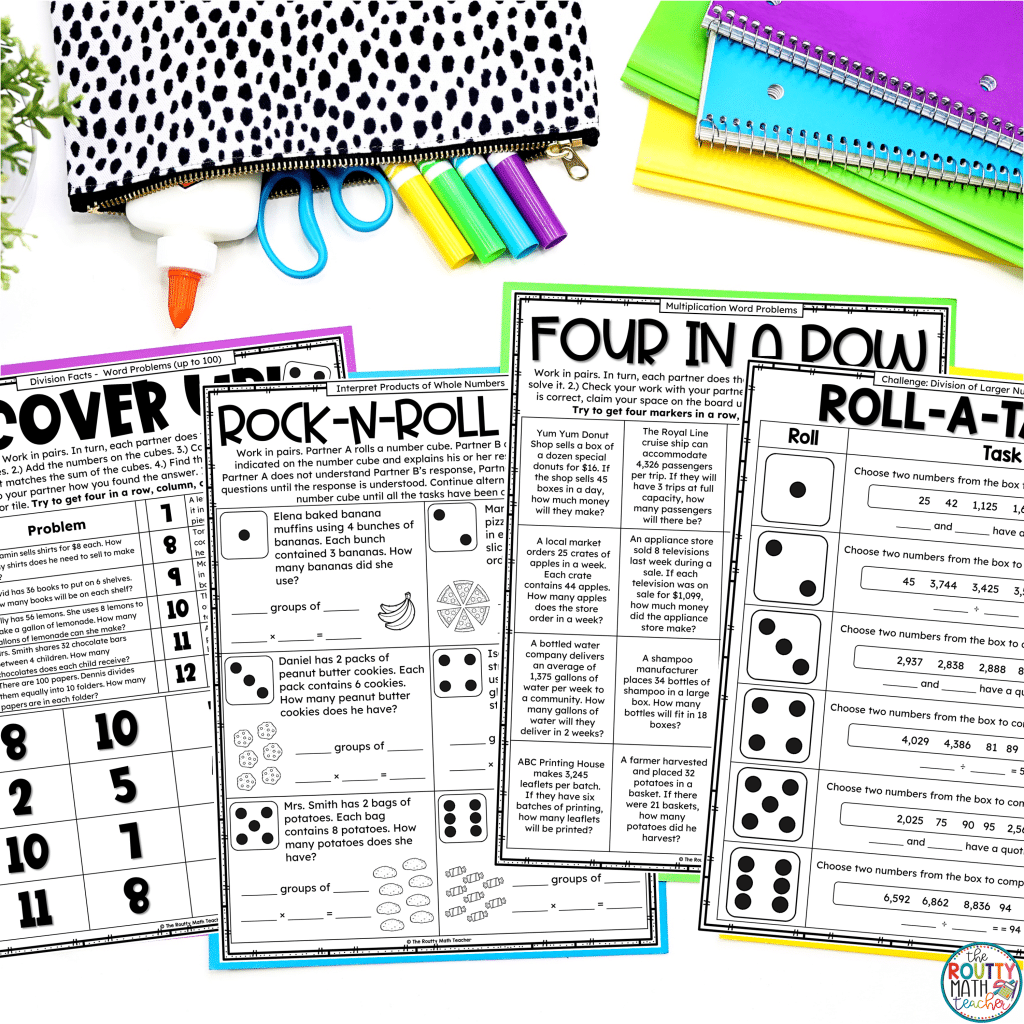
1. Modify Game Rules: Instead of having the students go back and forth to complete the problems, I require them to work on each problem together and agree on the answer. Additionally, I do not provide an answer key so the students have to work together to come to a consensus before moving to the next problem. This strategy forces the students to explain their solutions to their partners so they can evaluate each one for correctness.
2. Encourage Communication: I teach my students a structure for playing partner games that requires them to communicate mathematically and provide support when their partner does not understand a problem. This not only enhances their mathematical understanding but also nurtures their social skills and their ability to express their thoughts.
For example, when it’s Partner A’s turn, Partner A shares their answer with Partner B. If the answer is incorrect, Partner B uses tips to teach Partner A how to solve the problem. Even though Partner A is able to move forward on the gameboard, because of the mathematical communication required, the focus is on understanding the math and not capturing the space.
3. Focus on Completion: I often use a task sheet with a game-like feel to reinforce math content and skills. Students roll dice or spin a spinner to determine which task to complete. The students then continue rolling the dice or spinning the spinner until they complete all the tasks.
4. Promote Intrinsic Rewards: Rather than offer rewards for “winning” a game, I focus on ensuring students complete the problems. And, instead of recognizing individual achievements, I celebrate the accomplishments of the entire group.
For example, when a team completes one of the multiplication games, I acknowledge their collective effort. This reinforces the value of collaboration and strengthens the sense of unity within the classroom.
A Final Note
When we finish partner activities, I ask my students to thank their partners. This, in conjunction with the strategies listed above, helps to foster a collaborative and supportive learning environment while promoting social-emotional growth among upper elementary students.
How to Get Started
Integrating cooperative games into upper elementary math classrooms offers numerous benefits for students’ social-emotional learning, but it does not happen overnight.
It takes time and intentional planning to help students learn how to communicate effectively with their peers. The first few days and weeks of school is a great time to build community in the classroom.
By fostering collaboration, empathy, and respect, cooperative games create a positive classroom environment that supports the holistic development of students. Moreover, these games reduce anxiety, enhance problem solving skills, and promote resilience, preparing them to thrive both academically and in their personal lives.
Implementing cooperative learning structures during math stations is a great way to build community and promote social-emotional wellness.
Ready to Get Started?
Create your own multiplication games with this set of editable math games and activities!
And, be sure to read the next post in my cooperative math games series where I discuss the importance of building a math community in the classroom and share effective strategies and collaborative math talk structures to encourage student participation during math games.
Sound Off!
What are your favorite multiplication games? Respond in the comments below.

